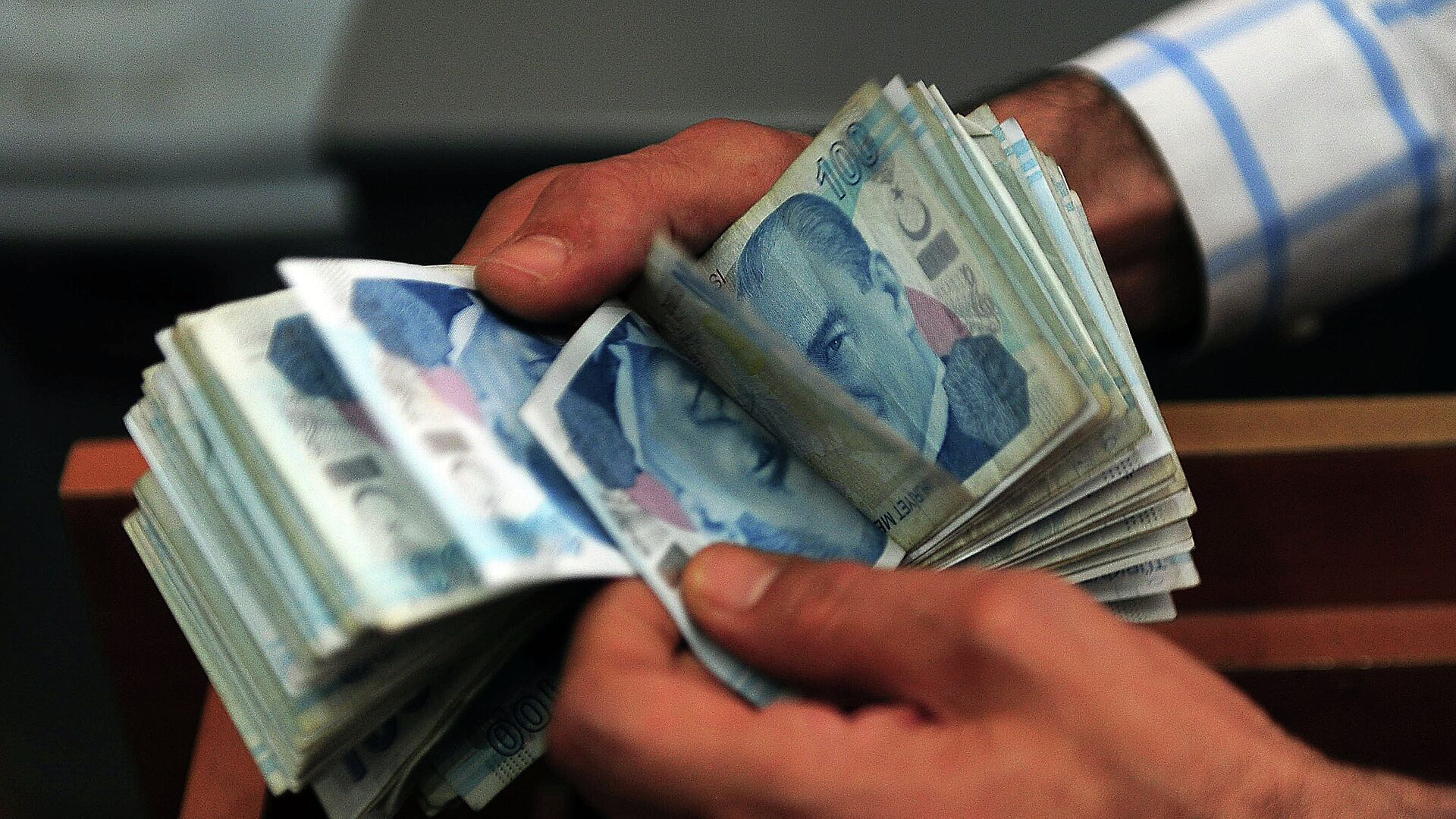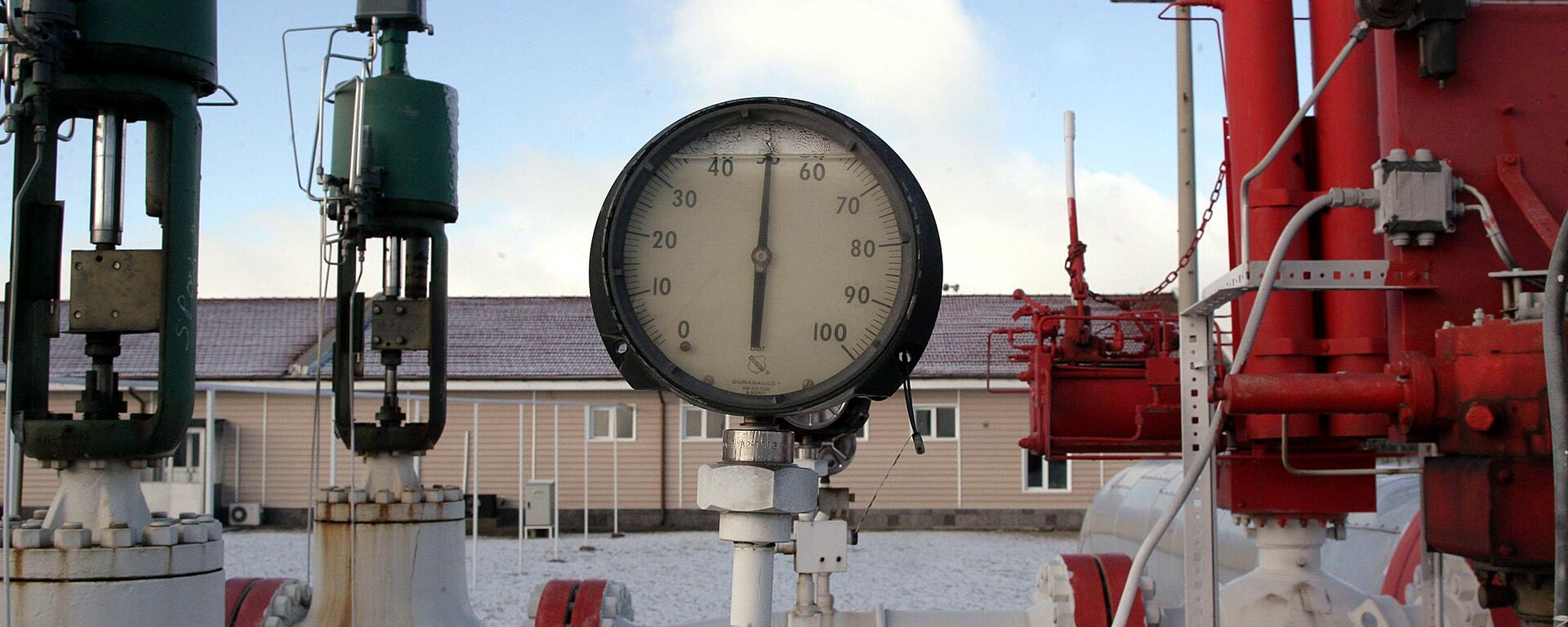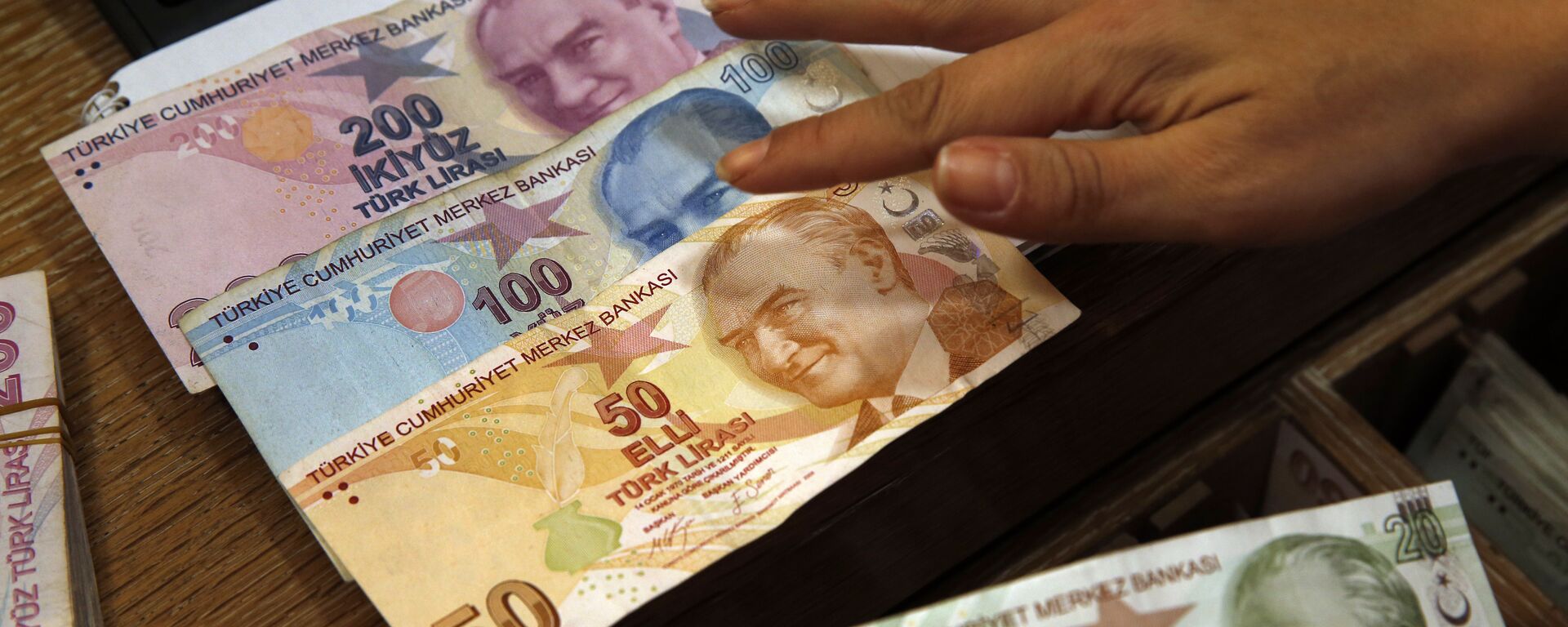https://sputnikglobe.com/20230530/de-dollarization-remains-erdogans-remedy-against-us-led-wests-assault-on-lira-1110780394.html
De-Dollarization Remains Erdogan's Remedy Against US-Led Assault on Lira
De-Dollarization Remains Erdogan's Remedy Against US-Led Assault on Lira
Sputnik International
The Turkish lira is at risk of a 29% slide if newly reelected President Recep Tayyip Erdogan proceeds with his "unorthodox" monetary policy, according to Morgan Stanley. Sputnik sat down with Tom Luongo, financial and geopolitical analyst, to discuss whether there are really reasons to worry.
2023-05-30T09:53+0000
2023-05-30T09:53+0000
2023-05-30T10:16+0000
analysis
opinion
recep tayyip erdogan
kemal kilicdaroglu
turkiye
west
russia
morgan stanley
turkish opposition republican people's party (chp)
turkish lira
https://cdn1.img.sputnikglobe.com/img/102572/25/1025722557_0:0:3501:1969_1920x0_80_0_0_9404a5bdc53f8860bc351164b31ccec2.jpg
At the heart of Erdogan's "unorthodoxy" is his unwillingness to resort to interest rate hikes in order to curb Turkiye's inflation, and with good reason, Tom Luongo said. What Erdogan did at the end of 2021 when the Turkish lira hit a peak of 18.2 versus the dollar was to use Turkiye’s relatively clean balance sheet (less than 40% debt-to-GDP) to encourage Turks to save and invest in the lira, the economist said. At the same time, the Turkish president encouraged Russian and Chinese investment in Turkish sovereign debt and infrastructure/trade projects."Those have been excellent investments for those investors," Luongo continued. "In November 2021, Turkish 10-year debt was yielding more than 23%. Today that number is 9.2%. The lira depreciated from an average of 15 to today’s 20 versus the dollar. Even accounting for the exchange rate losses, these have been excellent returns. Remember, bond prices rise as yield falls," Luongo detailed.During the presidential campaign, Erdogan's rival, the leader of the Republican People's Party (CHP) Kemal Kilicdaroglu, vowed to reverse the president's policy and double down on interest rate hikes. Now, with his re-election, Erdogan and Turkiye are "on the other side of political risk of new leadership changing the course," according to Luongo.It's hardly surprising though that the US is releasing gloomy forecasts about the future of the Turkish economy, according to the financial analyst. He suggested that the collective West has been trying to undermine confidence in the Turkish lira since at least 2018.In the eyes of the US and NATO, Erdogan is an "inconvenient" leader since he has been pursuing a sovereign foreign policy agenda, which is independent of the West, the expert explained, referring to Ankara's unwillingness to join anti-Russia sanctions, Ankara's relationship with China; Erdogan's recent normalization of ties with Damascus, and his open criticism of Washington's Syria policies, let alone Turkiye's cooperation with BRICS and the Shanghai Cooperation Organization (SCO).In light of this, Morgan Stanley's prognosis appears to be yet another attempt to deal a blow to investors' confidence in Turkiye's economic development. From now on, one of Erdogan's major goals is to fix the country's finances."Turkiye’s net foreign exchange liability position, which in 2018 was over $240 billion, was its Achilles heel," Luongo said. "Today that number is down to ~$80 billion, according to recent Bank of Turkiye data. So, while the situation is improving, it is still the vector on which Erdogan is most vulnerable. To fix this, Erdogan has rightly invited Chinese and Russian capital into Turkiye and cut major energy deals with Putin to mitigate their chronic current account and trade deficits as a major energy importer."
https://sputnikglobe.com/20230529/turkiye-may-intensify-talks-with-russia-on-gas-hub-project-in-near-future---source-1110765780.html
https://sputnikglobe.com/20230528/western-financial-giants-pressure-turkish-lira-amid-elections-1110657074.html
turkiye
west
russia
Sputnik International
feedback@sputniknews.com
+74956456601
MIA „Rossiya Segodnya“
2023
News
en_EN
Sputnik International
feedback@sputniknews.com
+74956456601
MIA „Rossiya Segodnya“
Sputnik International
feedback@sputniknews.com
+74956456601
MIA „Rossiya Segodnya“
turkish lira, dedollarization, turkish lira slump, erdogan low interest rates, turkiye inflation, turkiye gas hub, turkiye infrastructural projects, turkish-chinese projects, turkish-russian projects, akkuyu npp, turkiye energy deals, western pressure on turkish lira, turkish economy, confidence in turkish lira
turkish lira, dedollarization, turkish lira slump, erdogan low interest rates, turkiye inflation, turkiye gas hub, turkiye infrastructural projects, turkish-chinese projects, turkish-russian projects, akkuyu npp, turkiye energy deals, western pressure on turkish lira, turkish economy, confidence in turkish lira
De-Dollarization Remains Erdogan's Remedy Against US-Led Assault on Lira
09:53 GMT 30.05.2023 (Updated: 10:16 GMT 30.05.2023) The Turkish lira is at risk of a 29-percent slide if newly reelected President Recep Tayyip Erdogan proceeds with his "unorthodox" monetary policy, according to Morgan Stanley. Sputnik sat down with Tom Luongo, financial and geopolitical analyst, to discuss whether there are really reasons to worry.
At the heart of Erdogan's "unorthodoxy" is his unwillingness to resort to interest rate hikes in order to curb Turkiye's inflation, and with good reason, Tom Luongo said.
"Erdogan's 'unconventional' monetary policy was the basis for his exit strategy from the West for Turkiye," Luongo told Sputnik. "Erdogan challenged the conventional IMF policy of raising interest rates to attract foreign investors. Why would you want to attract the same people who previously pulled their money out of your country, destabilizing it. Foreign capital inflow under this model is just blackmail, leaving the government dependent on foreign largesse. If they don’t like your policies, they pull their money out, crash the currency and hope to effect political reform more to their liking."
What Erdogan did at the end of 2021 when the Turkish lira hit a peak of 18.2 versus the dollar was to use Turkiye’s relatively clean balance sheet (less than 40% debt-to-GDP) to encourage Turks to save and invest in the lira, the economist said. At the same time, the Turkish president encouraged Russian and Chinese investment in Turkish sovereign debt and infrastructure/trade projects.
"Those have been excellent investments for those investors," Luongo continued. "In November 2021, Turkish 10-year debt was yielding more than 23%. Today that number is 9.2%. The lira depreciated from an average of 15 to today’s 20 versus the dollar. Even accounting for the exchange rate losses, these have been excellent returns. Remember, bond prices rise as yield falls," Luongo detailed.
During the presidential campaign, Erdogan's rival, the leader of the Republican People's Party (CHP) Kemal Kilicdaroglu, vowed to reverse the president's policy and double down on interest rate hikes. Now, with his re-election, Erdogan and Turkiye are "on the other side of political risk of new leadership changing the course," according to Luongo.
"Turkiye isn’t out of the woods yet, but the economic data is improving, in some areas like Manufacturing Confidence and Capacity Utilization quite rapidly," the expert said. "Political stability is what is needed now. Erdogan has been given another [five] years to complete the turnaround and reimagining of the Turkish economy."
It's hardly surprising though that the US is releasing gloomy forecasts about the future of
the Turkish economy, according to the financial analyst. He suggested that the collective West has been trying to
undermine confidence in the Turkish lira since at least 2018.
In the eyes of the US and NATO,
Erdogan is an "inconvenient" leader since he has been pursuing a sovereign foreign policy agenda, which is independent of the West, the expert explained, referring to Ankara's unwillingness to join anti-Russia sanctions, Ankara's relationship with China; Erdogan's recent normalization of ties with Damascus, and his open criticism of Washington's Syria policies, let alone Turkiye's cooperation with
BRICS and the
Shanghai Cooperation Organization (SCO).
"[The West] have put considerable support behind his opponent Kemal Kilicdaroglu, cobbling together a Not-Erdogan 'Table of Six' coalition which is the only thing they agree on," said Luongo.
In light of this, Morgan Stanley's prognosis appears to be yet another attempt to deal a blow to investors' confidence in Turkiye's economic development. From now on, one of Erdogan's major goals is to fix the country's finances.
"Turkiye’s net foreign exchange liability position, which in 2018 was over $240 billion, was its Achilles heel," Luongo said. "Today that number is down to ~$80 billion, according to recent Bank of Turkiye data. So, while the situation is improving, it is still the vector on which Erdogan is most vulnerable. To fix this, Erdogan has rightly invited Chinese and Russian capital into Turkiye and
cut major energy deals with Putin to mitigate their chronic current account and trade deficits as a major energy importer."
"The recent notes from US banks are simply pushing the situation to the extreme. Turkiye has few options but to continue to de-dollarize," the financial expert concluded.




